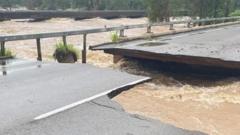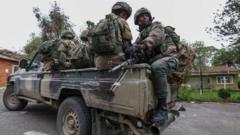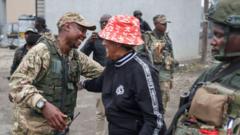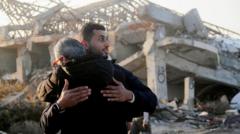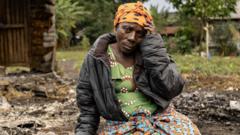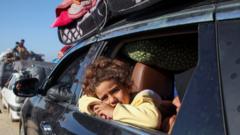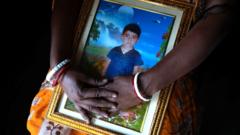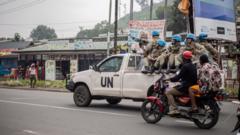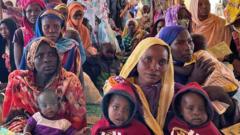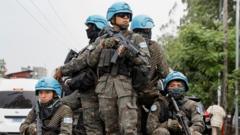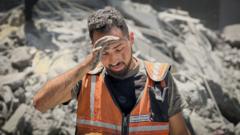The devastating impact of Cyclone Chido in Mozambique has escalated, with the government reporting an alarming death toll of 75. This figure, unveiled on Friday, nearly doubles initial estimates as rescue workers access remote areas cut off by the storm's wrath. The cyclone struck early in the week in Cabo Delgado, a region already beleaguered by a prolonged insurgency linked to the Islamic State.
Cyclone Chido's Toll Escalates to 75 as Mozambique Struggles to Recover

Cyclone Chido's Toll Escalates to 75 as Mozambique Struggles to Recover
The death toll from Cyclone Chido has nearly doubled, as Mozambique faces overwhelming damage and humanitarian challenges.
The destruction within Cabo Delgado was catastrophic, with at least 69 fatalities and 740 injuries documented by Mozambique’s National Institute for Natural Disasters. Rescue efforts faced significant challenges, as workers navigated washed-out dirt roads to reach the most affected communities. Eyewitness accounts paint a dire picture of the aftermath, with Isadora Zoni, a UN refugee agency officer, describing the ravaged district of Mecufi as "utter destruction" where buildings were flattened and health facilities devastated.
Mozambique, one of the world's poorest nations and highly vulnerable to climate change, is no stranger to such natural disasters, frequently experiencing storms from the southern Indian Ocean. As images circulated showing ruined mud homes and wooden structures reduced to debris, the state of emergency in Cabo Delgado emerged as even more dire, with many residents still living in tents following the earlier violence of the insurgency.
As Cyclone Chido rushed through the region with wind speeds reaching 115 miles per hour, the storm inflicted additional harm on Mayotte, a French archipelago, where at least 31 lives were lost. The cyclone's path raises concerns over an impending intense rainy season that could further exacerbate flooding and storm conditions. The United Nations Refugee Agency noted the history of recurring cyclones in the region, highlighting the ongoing challenges faced by the local populace. In past years, Mozambique experienced the devastating impacts of Tropical Cyclone Freddy and Cyclone Gombe, resulting in significant casualties and displacement.
As the country grapples with the compounded crises of conflict and climate-related devastation, the desperate need for humanitarian aid and infrastructure restoration remains evident.
Mozambique, one of the world's poorest nations and highly vulnerable to climate change, is no stranger to such natural disasters, frequently experiencing storms from the southern Indian Ocean. As images circulated showing ruined mud homes and wooden structures reduced to debris, the state of emergency in Cabo Delgado emerged as even more dire, with many residents still living in tents following the earlier violence of the insurgency.
As Cyclone Chido rushed through the region with wind speeds reaching 115 miles per hour, the storm inflicted additional harm on Mayotte, a French archipelago, where at least 31 lives were lost. The cyclone's path raises concerns over an impending intense rainy season that could further exacerbate flooding and storm conditions. The United Nations Refugee Agency noted the history of recurring cyclones in the region, highlighting the ongoing challenges faced by the local populace. In past years, Mozambique experienced the devastating impacts of Tropical Cyclone Freddy and Cyclone Gombe, resulting in significant casualties and displacement.
As the country grapples with the compounded crises of conflict and climate-related devastation, the desperate need for humanitarian aid and infrastructure restoration remains evident.

